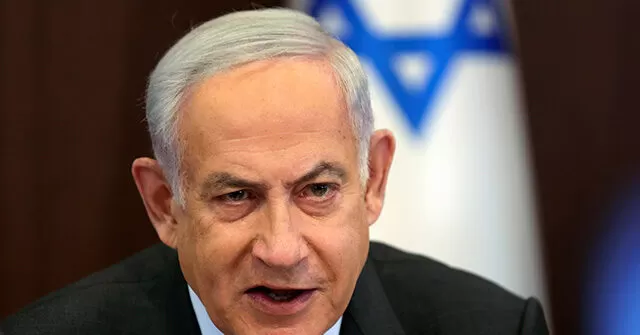Israeli Prime Minister Benjamin Netanyahu has once again made headlines, this time for his response to US President Joe Biden’s claim about a proposed ceasefire deal with Hamas. In a statement released on Friday, Netanyahu declined to confirm or deny Biden’s assertion that the deal would allow for the release of hostages and for Hamas to remain in power in Gaza.
The statement from the Israeli Prime Minister further adds to the ongoing conflict between Israel and Hamas, which has resulted in the loss of hundreds of lives and a humanitarian crisis in the Gaza Strip. With the international community urging for an immediate ceasefire, Biden’s claim of a proposed deal raised hopes for a potential resolution to the violence.
However, Netanyahu’s response has cast doubts on the feasibility of such a deal and has left many questioning the intentions of the Israeli government. The Prime Minister’s refusal to confirm or deny the proposal has only added to the confusion and uncertainty surrounding the situation.
In his statement, Netanyahu emphasized that Israel’s top priority is the safety and security of its citizens, and any decision made must be in the best interest of the country. He also reiterated that Israel will continue to take all necessary measures to protect its people from the constant barrage of rocket attacks from Hamas.
The Prime Minister’s stance has been met with mixed reactions, with some praising his determination to protect Israel’s interests, while others expressing disappointment and frustration with the lack of progress towards a ceasefire. Many have also criticized the Israeli government’s handling of the conflict, with some accusing them of being the aggressors and using excessive force against the Palestinians.
The ongoing violence has sparked worldwide outrage and calls for an immediate end to the conflict. The United Nations has repeatedly urged for a ceasefire, stating that the current situation is only exacerbating the already dire humanitarian crisis in Gaza. The US, a long-time ally of Israel, has also been pushing for a resolution to the conflict and has been in talks with both parties to try and reach a ceasefire agreement.
Biden’s claim of a proposed deal between Israel and Hamas raised hopes for a potential breakthrough in the conflict. However, Netanyahu’s response has dampened those hopes and has raised concerns about the direction of the negotiations. With no confirmation or denial from the Israeli government, it is unclear whether the proposal is still on the table or if it was ever a serious consideration.
The potential deal, as claimed by Biden, has also sparked controversy and debate over its feasibility and implications. Allowing Hamas to remain in power in Gaza, a designated terrorist organization by the US and many other countries, has been met with strong opposition. Critics argue that such a move would only embolden Hamas and further destabilize the region.
Amidst the ongoing conflict and political turmoil, the people of Gaza continue to suffer. The constant bombardment and destruction of their homes and infrastructure have left them in a dire situation with limited access to basic necessities such as food, water, and medical supplies. The proposed ceasefire deal, if true, could potentially provide some relief to the people of Gaza, but at what cost?
As the situation continues to escalate, it is imperative for all parties involved to prioritize the lives and well-being of civilians. The international community must continue to push for a peaceful resolution to the conflict and provide aid and support to those affected by the violence.
In conclusion, while Biden’s claim of a proposed ceasefire deal between Israel and Hamas had raised hopes for a potential resolution to the conflict, Netanyahu’s response has cast doubts on the feasibility and intentions behind such a deal. As the world watches with bated breath, it is crucial for all parties involved to work towards a peaceful resolution and end the suffering of innocent civilians caught in the crossfire.

